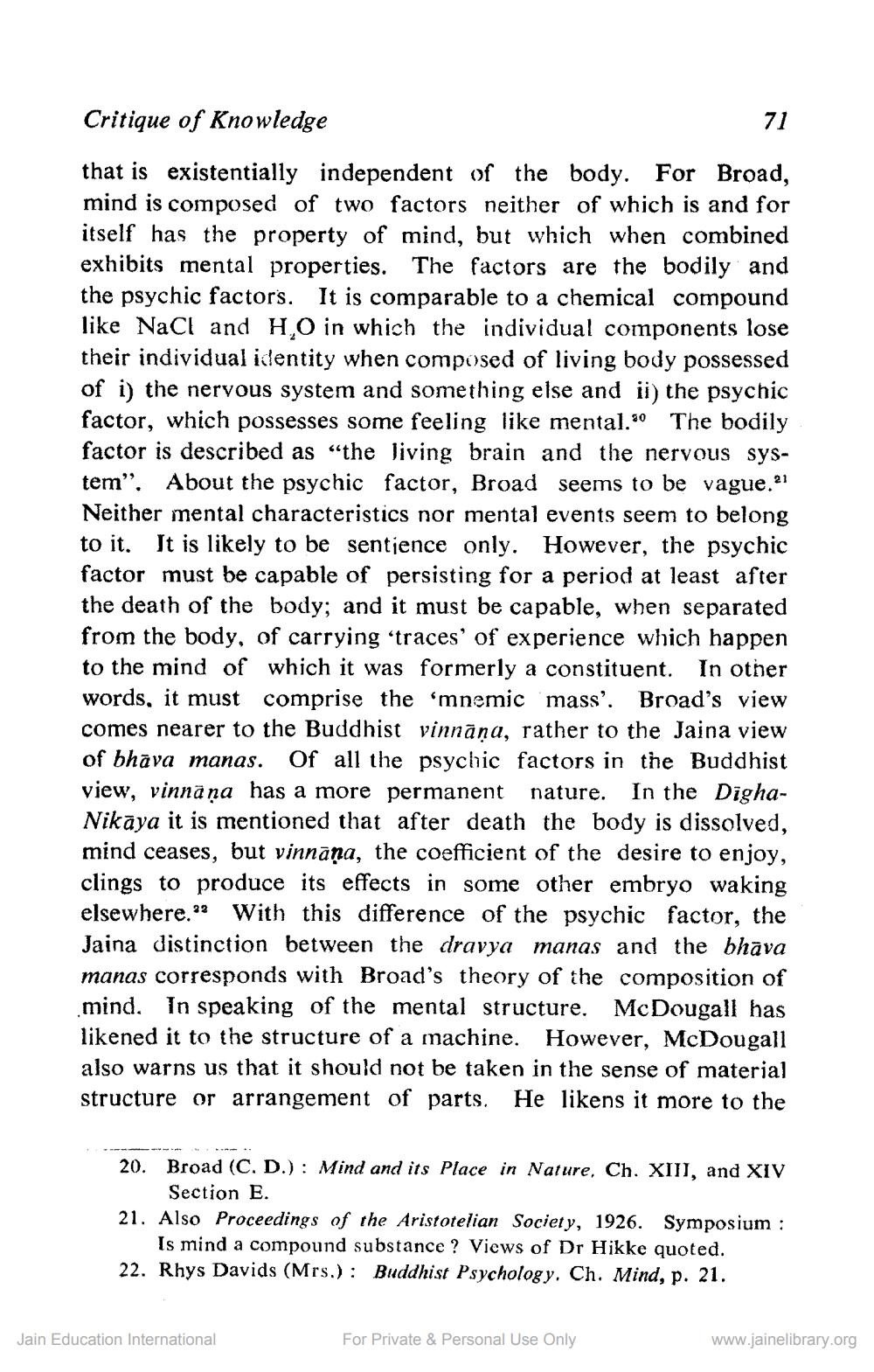________________
Critique of Knowledge
that is existentially independent of the body. For Broad, mind is composed of two factors neither of which is and for itself has the property of mind, but which when combined exhibits mental properties. The factors are the bodily and the psychic factors. It is comparable to a chemical compound like NaCl and H.O in which the individual components lose their individual identity when composed of living body possessed of i) the nervous system and something else and ii) the psychic factor, which possesses some feeling like mental.50 The bodily factor is described as “the living brain and the nervous system”. About the psychic factor, Broad seems to be vague.21 Neither mental characteristics nor mental events seem to belong to it. It is likely to be sentience only. However, the psychic factor must be capable of persisting for a period at least after the death of the body; and it must be capable, when separated from the body, of carrying 'traces' of experience which happen to the mind of which it was formerly a constituent. In other words, it must comprise the 'mnemic mass'. Broad's view comes nearer to the Buddhist vinnāna, rather to the Jaina view of bhāva manas. Of all the psychic factors in the Buddhist view, vinnāņa has a more permanent nature. In the DighaNikāya it is mentioned that after death the body is dissolved, mind ceases, but vinnāņa, the coefficient of the desire to enjoy, clings to produce its effects in some other embryo waking elsewhere." With this difference of the psychic factor, the Jaina distinction between the dravya manas and the bhāva manas corresponds with Broad's theory of the composition of mind. In speaking of the mental structure. McDougall has likened it to the structure of a machine. However, McDougall also warns us that it should not be taken in the sense of material structure or arrangement of parts. He likens it more to the
20. Broad (C. D.): Mind and its Place in Nature, Ch. XIII, and XIV
Section E. 21. Also Proceedings of the Aristotelian Society, 1926. Symposium :
Is mind a compound substance ? Views of Dr Hikke quoted. 22. Rhys Davids (Mrs.): Buddhist Psychology, Ch. Mind, p. 21.
Jain Education International
For Private & Personal Use Only
www.jainelibrary.org




